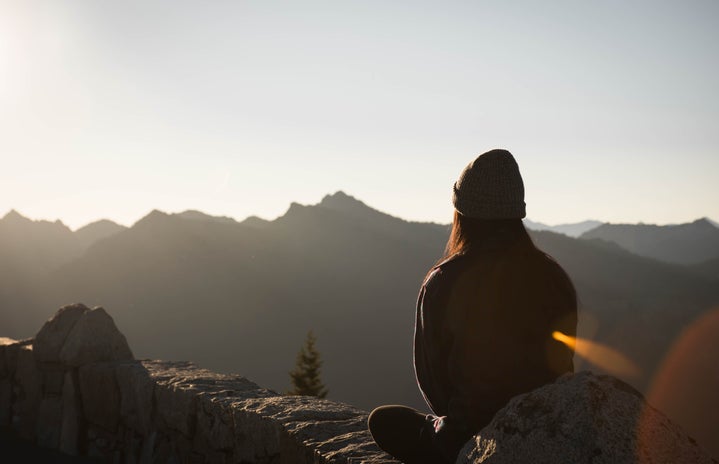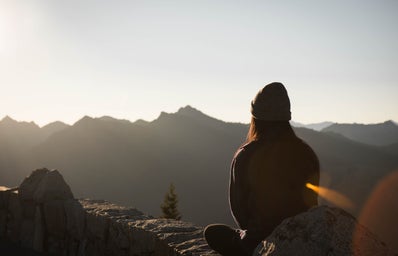Edited by: Janani Mahadevan
Travelling is an essential act of indulgence for our spirit. The spirit in man lives off experiences. Many philosophers have termed this hunger of the spirit as being one of the ‘higher’ pleasures. Be that as it may, I recently experienced a paradox upon returning from my week-long tour of Kashmir, which was of the conflicting state of mind that arises upon the conclusion of one’s travels and the subsequent homecoming. There is a strong urge to return home, back into familiar hospices and routines while at the same time, the spirit yearns to break free and simply keep travelling, seeking new pastures. These opposite thoughts provoke the eternal tussle between pragmatism and carefreeness. An attempt at arriving at its resolution, though futile, is still worthwhile.
As I made my way from the airport to my residence, my first realisation was the sudden and unpleasant drop in the quality of the air. After breathing the invigorating air of the Pir-Panjal mountain ranges, I was expecting this disappointment. Soon, the mixture of poor air, excess noise and the unwelcome sight of traffic made me terribly uneasy. A part of me wanted to run away from this journey and start another one leading anywhere but home. On the flight back, I was visualising the moment when I would step into my ‘territory’, as it were. Changing hotels and elevations too frequently had taken its toll on me. Despite the thrill and joy of travelling, I would have given anything to just return to my small kingdom of a bed and its attached privy.
There is a certain wholesomeness in the simple room all of us inhabit. While I can’t exactly call myself an experienced home-dweller due to the numerous transfers I have been subjected to, even a few years in a place have been enough for me to connect with it. The warm, fuzzy feeling of remaining within those four walls is irreplaceable. At the same time, the spirit is perpetually on the lookout for a window of escape; it will brave exhaustion, discomfort and loss of time in transportation just for that elusive experience. Dare I say it, the more you work for it, the more rewarding the experience gets. The idea that one has to trek for two days to then reach a lake high up in the mountains is very appealing to me, as those two days would be spent in the apprehension of the final destination, and not to mention the fact that the trek is by itself another experience on its own. Add to that the prospect of undertaking this trek with someone you hold dear and you have an experience capable of satiating the spirit for upwards of a year, maybe even more.
So, why do people not travel like this all the time? Subsisting on the passion which flows from the spirit after it has its fill of experiences. Well, some people do travel all the time, for the sake of travelling. My heart skips a beat, maybe this is the right career path for me, I like writing and travelling. Why not become a travel writer or blogger or vlogger, whichever pays more? I confess many hours have been spent fantasizing in this way. However, reality catches up with me soon enough, so embracing caution and fear of change, I dismiss my spirit’s wild tendencies. I continue to thrive in my small room, put up with the little joys and persistent pains that come with it. In ebbs and flows, life goes on, and nothing is out of the ordinary, and every other year I go somewhere with the family, like a small pilgrimage or otherwise. It’s not much but it is non-disruptive and most importantly, viable.
I think the solution, like with all conflicts of the temporal nature, is markedly spiritual, wherein one seeks the middle ground. The right mixture of travelling and remaining at home is hard to arrive at, and different for everyone but still, too much of one or the other is not desirable. Sometimes, the undesirable serves as the foundation for the desire to be enjoyed. All of us have our defeats and victories; it is often more of the former than the latter, and it is, therefore, easier to despair over the downturns and forget the following upsurges. This, I believe, is the larger paradox that develops from the traveller’s feelings of conflict. And this paradox is in many ways the one and only one we face in our lives. It may come in various contexts and at various times but under all of that, it is the same old conflict.
Then, what is a traveller to do? The traveller should continue to travel and return home again and again. The time spent at home should intensify their longing to travel and vice versa. In this way, the traveller can make the best of both those situations. Such should be our policy in life as well, embrace the displeasure and use it to intensify the pleasurable and the other way around. Doing so will allow us to live life completely in all its respects. A time will come when the agitation of sorrow and the excitement of joy will merge into one uniform feeling of calm arising out of a realised detachment. That will be the culmination of the spirit’s quest and the end of our road. Until then, I best continue on my way.


